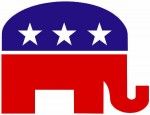Being Right: The Problems Facing the Economy

When a person gets sick, his doctor carefully analyzes his symptoms and prescribes the proper remedy. When society falls ill, however, the government’s response is frequently less effective. Politicians are forced to act quickly, often without understanding the issues, and provide quick relief to satisfy their constituents. Usually, this process results in poor policies that sometimes even exacerbate the problems they were intended to solve. And nowhere is this phenomenon clearer than in economic issues.
If America wants to fix its economy more permanently, it is obvious that a new approach is needed. First, politicians should figure out the true cause of America’s miserable economy. Only then can they be in a position to do anything about it. Next, they will have to cooperate to create a bipartisan plan that places an emphasis on long-term, market-based solutions to boost the economy and provide sustained economic growth.
However, one step will need to be taken before either of these goals are even remotely feasible. Currently, productive dialogue about the economy is all but extinct, due to an increasingly divided Congress. This divide results from decades of gerrymandering that have left a strong majority of Congressmen in strongly partisan districts. This means that in many cases, Congressmen are forced to hold rigidly to their districts’ ideals, regardless of their own beliefs, and more importantly what is best for the country.
Therefore, electoral reform is in desperate need. However, since current congressmen will obviously prefer the electoral lines that got them elected, the responsibility for this reform falls to the president. Mr. Obama should attempt to convince the public of the necessity of these reforms, who will in turn put pressure on their state governments to redraw their congressional lines. If these lines are indeed redrawn to promote greater competition among candidates, the outcome will be a Congress that works harder and more efficiently to address the problems of the day. After that, the rest should be fairly simple.
First comes the cause of the ailing economy. Even with a more moderate Congress, it will be hard for policymakers to agree on a single cause: at present, even moderate Republicans and Democrats have starkly different goals. However, politicians should take a step back to see the larger picture.
The reality is that perhaps the greatest problems facing the American economy today are uncertainty and instability. These problems always exist regardless of economic policy, especially in a world in which foreign markets are quickly changing and frequently in crisis. However, recent economic policy has been capricious and at times, downright dangerous to the economy. Inter-party bickering and budgetary showdowns (think of the summer of 2011) have caused businesses to worry about the future of the economy, and have therefore further enshrouded them in uncertainty and have occasionally caused outright panic. When S&P downgraded America’s AAA debt rating in 2011, it cited unpredictable public policy as a major reason.
That is why it would behoove politicians in Washington to attempt to put aside differences and work to create a sustainable, long-term economic policy. For guidance, these politicians should look to the Federal Reserve, where Chairman Bernanke has made crystal clear his intentions to keep interest rates low for years to come. Washington should do likewise. Congress should work to formulate policies that set tax and regulative policies years in advance, rather than in short stopgap measures. That way, businesses and consumers will be able to make more informed financial decisions without worrying about sudden changes in policy.
Undoubtedly, fixing America’s disease-ridden economy will take much more than this: infrastructure is in shambles, education is lacking, and unemployment is still widespread. However, providing a bit of stability to the economy would certainly help. After all, economic policy should attempt to mitigate uncertainty, not increase it.



